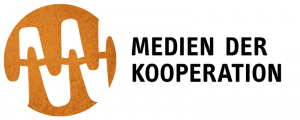Research and Projects
Our projects include media geography, mobile media and media methodology. An overview of current research projects can be found on the following website:Â http://www.mobilemedia.uni-siegen.de/forschung/.
Smooth spaces, multiple distances: a praxeological analysis of VR-Interfaces
Research project of Max Kanderkse and Tristan Thielmann (2016-2019)The purpose of this research project is to study the interdependencies and interferences between virtual spaces and real environments, as they can be experienced by users of Virtual and Augmented Reality technology. The basic requirement for such a superposition of spaces to occur, is the tracking of physical objects belonging to the real environment, particularly the various body parts and by extension the movements of the users, thus enabling effects like updating the virtual cameras position in accordance with the users head movement or manipulating virtual objects via gesture recognition.The focal point of the project is the analysis of a particular kind of tracking interface, which transmits the users actions into the virtual environment without the requirement of a handheld device having to act as a go-between: the cameras which are to be examined are equipped with Photonic Mixing Devices (PMDs), allowing precise measurement of the distances between the sensors and the filmed objects, thus enabling the generation of a depth-model that is updated in almost real-time and whose data output can be used for gesture recognition or the creation of virtual 3D copies of objects belonging to the real environment. The multiple measurements of distance that simultaneously occur in the sensor matrix of the PMD-component thereby constitute the basis for a positional alignment of objects in both real and virtual spaces. Whether that alignment also signifies a match between input operation and the resulting action in the virtual environment remains to be uncovered by the means of praxeological research.Apart from studying the operations connected to the interface technology, another goal of the project is to gain insight into the possibility of VR- and AR-technology changing the users perception of ones own body as well as of the surrounding space, thereby drawing a connection to the technologys inherent potential to manipulate the sensory space of its operators.
DFG Research Project “Navigation in Online / Offline Spaces”
Funding Period: 2016 – 2019
Principal Investigators: Tristan Thielmann and Carolin Gerlitz
The focus of the research project is the analog and digital map as a platform and calculative collective device for the interoperability of heterogeneous media. The aim is to determine the interactive relationship between spatial and media practices. This is to be carried out against the background of the analysis of three navigational media: a) US-American road books from around 1900, b) drone media, and c) crowdsourced maps and social navigation apps. Based on a comparison of these three corpora, an investigation is to be carried out into the question of which media practices facilitate the stabilization of navigation in online and offline spaces. The comparative analysis will reveal what contribution the cultural and social research on the praxeology of maps can make towards the transferal to mobile and connected digital devices. To this end, analog route maps will be subjected to a historical and praxeological analysis and digital navigation apps using digital methods will be respecified as ecologies of connected devices. Finally, it will be examined what contribution geographic practice theories can make toward a media practice theory.
DFG Research Project “Scientific Media of Practice Theory: Harold Garfinkel and Ludwig Wittgenstein”
Funding Period: 2016 – 2019
Principal Investigators: Erhard Schüttpelz, Tristan Thielmann and Anne Warfield Rawls
Using two classics of practice theory, this research project widens the scope of Science and Technology Studies (STS) for investigating media and publication practices in the humanities and social sciences. This is achieved on three levels: 1) through a comparison of Garfinkel’s and Wittgenstein’s complementary practice theories, 2) through a socio-technological contextualized history of editing Wittgenstein’s writings and 3) through an exploration of writing practices in a digital edition of Garfinkel’s early ethnomethodology.
Thereby, the research project investigates cooperative media:
– based on Ludwig Wittgensteins history of editions, which has gone through a paradigmatic history of media and technology between analog and digital media (with pioneering programs, not only written for the field of Digital Humanities) since the 1950s; and
– based on the contemporaneous development of ethnomethodology used by Harold Garfinkel, whose media practices were usually arranged in the framework of an interdisciplinary collaboration or through transdisciplinary transfer, the central topic of which consisted of the investigation of both universal and practical principles of cooperation.
At the center of this STS analysis are innovation and its socio-technical planning, as well as the unplanned trajectories and tests of the artifacts obtained, including their possible consolidation; these tests are based on controversies that are central to the sciences in question and their boundary work.
The research project aims to publish a digital edition of the early papers of Harold Garfinkel that will be accessible for scientific use.
Media of Cooperation

The Special Research Field “Media of Cooperation” is a long-term interdisciplinary research effort to analyze the production of cooperation settings using media. The INF subproject of this SFB provides the sociotechnical infrastructure to support the research being done in the other projects, and support researcher-driven innovation of the methodological inventory of the associated disciplines continuing discourses in E-Humanities, Digital Humanities and E-SocialScience through the researchers themselves.
